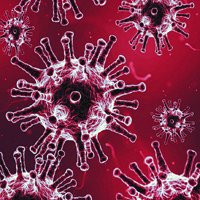My story in response to the stories of my patients’ experience of the impact of the COVID-19 pandemic: a relational psychoanalytic approach

Submitted: August 30, 2020
Accepted: November 14, 2020
Published: January 14, 2021
Accepted: November 14, 2020
Abstract Views: 1072
PDF: 514
HTML: 16
HTML: 16
Publisher's note
All claims expressed in this article are solely those of the authors and do not necessarily represent those of their affiliated organizations, or those of the publisher, the editors and the reviewers. Any product that may be evaluated in this article or claim that may be made by its manufacturer is not guaranteed or endorsed by the publisher.
All claims expressed in this article are solely those of the authors and do not necessarily represent those of their affiliated organizations, or those of the publisher, the editors and the reviewers. Any product that may be evaluated in this article or claim that may be made by its manufacturer is not guaranteed or endorsed by the publisher.
Similar Articles
- Gonca Soygüt, İsmail Volkan Gülüm, A thematic analysis of therapists' perspectives on therapeutic alliance rupture moments , Research in Psychotherapy: Psychopathology, Process and Outcome: Vol. 19 No. 2 (2016)
- Laura Bonalume, Laura Corbelli, Mattia Ferro, Anna Lisa Mazzoleni, Maria Pia Roggero , Developing a prototype for relationship therapy psychoanalysis: an empirical study with the Psychotherapy Process Q-set , Research in Psychotherapy: Psychopathology, Process and Outcome: Vol. 26 No. 1 (2023)
- Samuel F. Mikail, Paul L. Hewitt, Gordon L. Flett, Sabrina Ge, Group dynamic-relational therapy for perfectionism , Research in Psychotherapy: Psychopathology, Process and Outcome: Vol. 25 No. 3 (2022): SPECIAL ISSUE: "Group psychotherapy: between settled benchmarks and new horizons"
- Nina Jakhelln Laugen, Torun Grøtte, Truls Ryum, Patrick A. Vogel, Heidi Brattland, Katrine Høyer Holgersen, Something has sort of opened up for me: psychology students’ reflections after participating in an apprenticeship training model , Research in Psychotherapy: Psychopathology, Process and Outcome: Vol. 27 No. 2 (2024)
- Sara Silva, Isabel Basto, João Salgado, Carla Cunha, Validation of the client satisfaction questionnaire: a pilot psychometric analysis in Portuguese routine practice , Research in Psychotherapy: Psychopathology, Process and Outcome: Vol. 26 No. 2 (2023)
- Michela Gatta, Marta Sisti, Laura Sudati, Marina Miscioscia, Alessandra Simonelli, The Lausanne Trilogue Play within the outcome evaluation in infant mental health: a preliminary report , Research in Psychotherapy: Psychopathology, Process and Outcome: Vol. 19 No. 1 (2016): Special issue on Qualitative and Quantitative Research in Child and Adolescent Psychotherapy: part 2
- Raquel Pereira, António Pazo Pires, David Neto, Therapist self-awareness and perception of actual performance: the effects of listening to one recorded session , Research in Psychotherapy: Psychopathology, Process and Outcome: Vol. 27 No. 1 (2024)
- Jule Bauckhage, Christian Sell, When and for whom do psychodynamic therapists use guided imagery? Explicating practitioners’ tacit knowledge , Research in Psychotherapy: Psychopathology, Process and Outcome: Vol. 24 No. 3 (2021)
- Vasiliki Yotsidi, Theodora Anastasiou, Konstantinos Doulgeris, Panagiota Theodosiou, Clive Richardson, Trauma focused-cognitive behavioral therapy training effectiveness in promoting professional development of psychotherapists working with unaccompanied minors in Greece: a non-blinded randomized control trial , Research in Psychotherapy: Psychopathology, Process and Outcome: Vol. 27 No. 2 (2024)
- Joào F. Barreto, Paula Mena Matos, Balancing clinical risk with countertransference management protects alliance , Research in Psychotherapy: Psychopathology, Process and Outcome: Vol. 20 No. 3 (2017)
<< < 1 2 3 4 5 6 7 8 9 10 > >>
You may also start an advanced similarity search for this article.

 https://doi.org/10.4081/ripppo.2020.490
https://doi.org/10.4081/ripppo.2020.490





